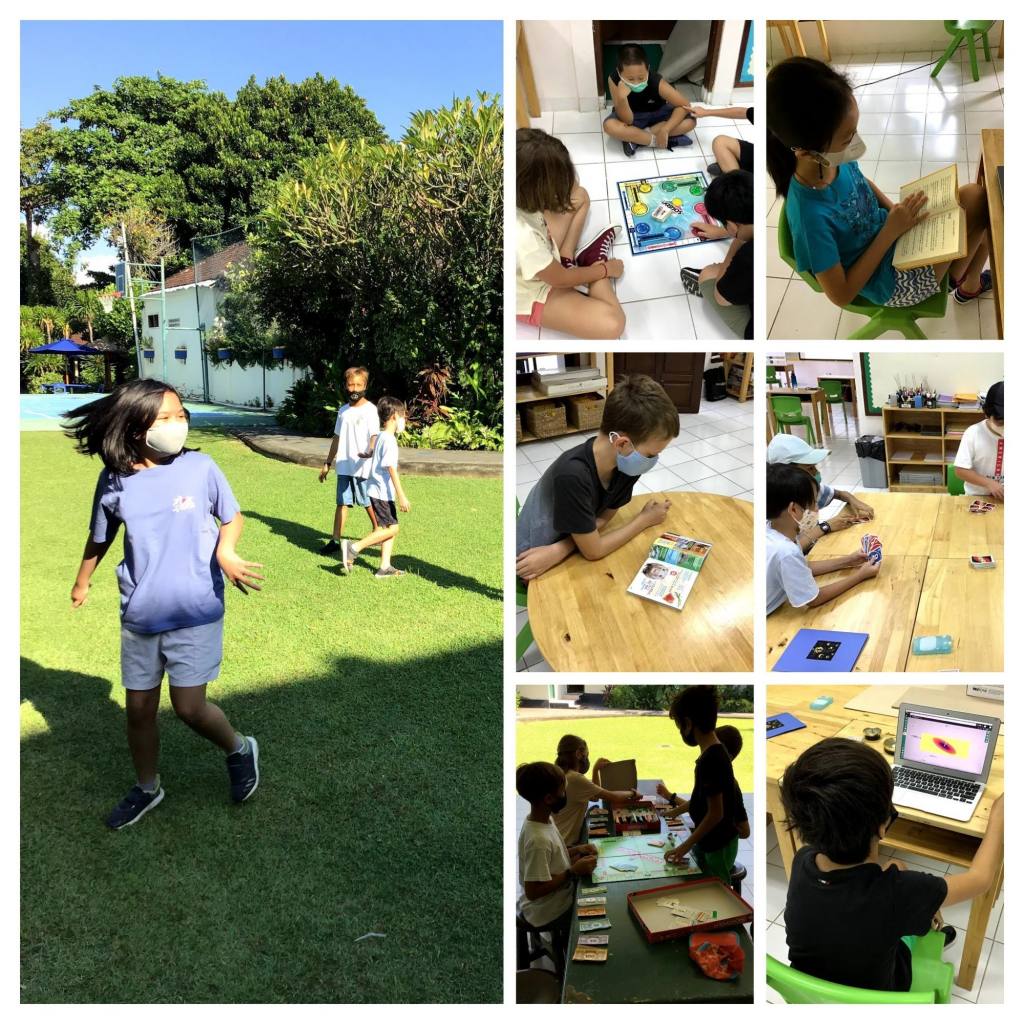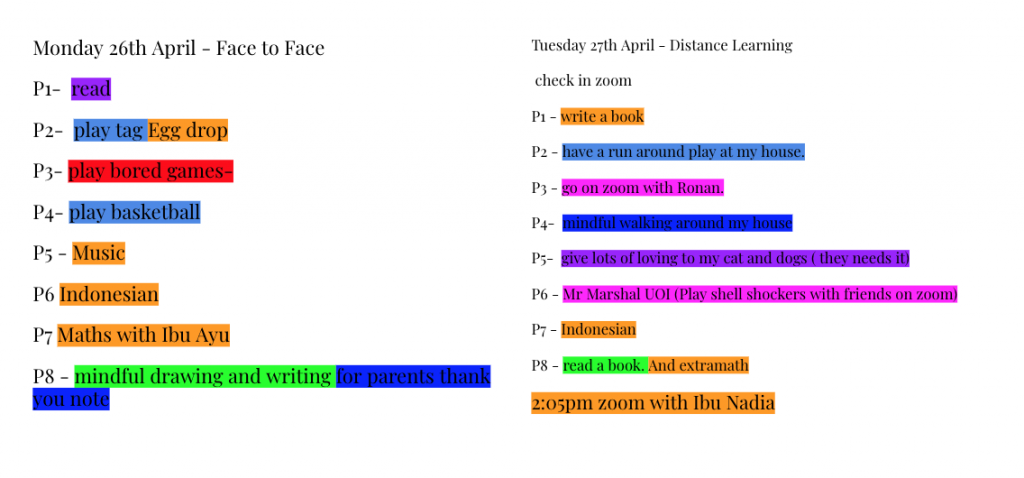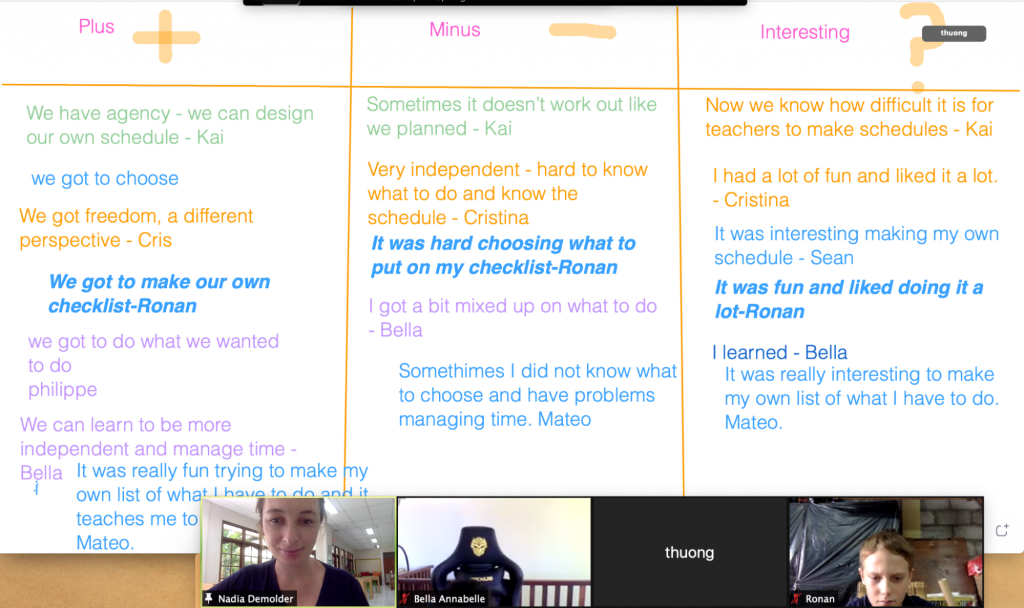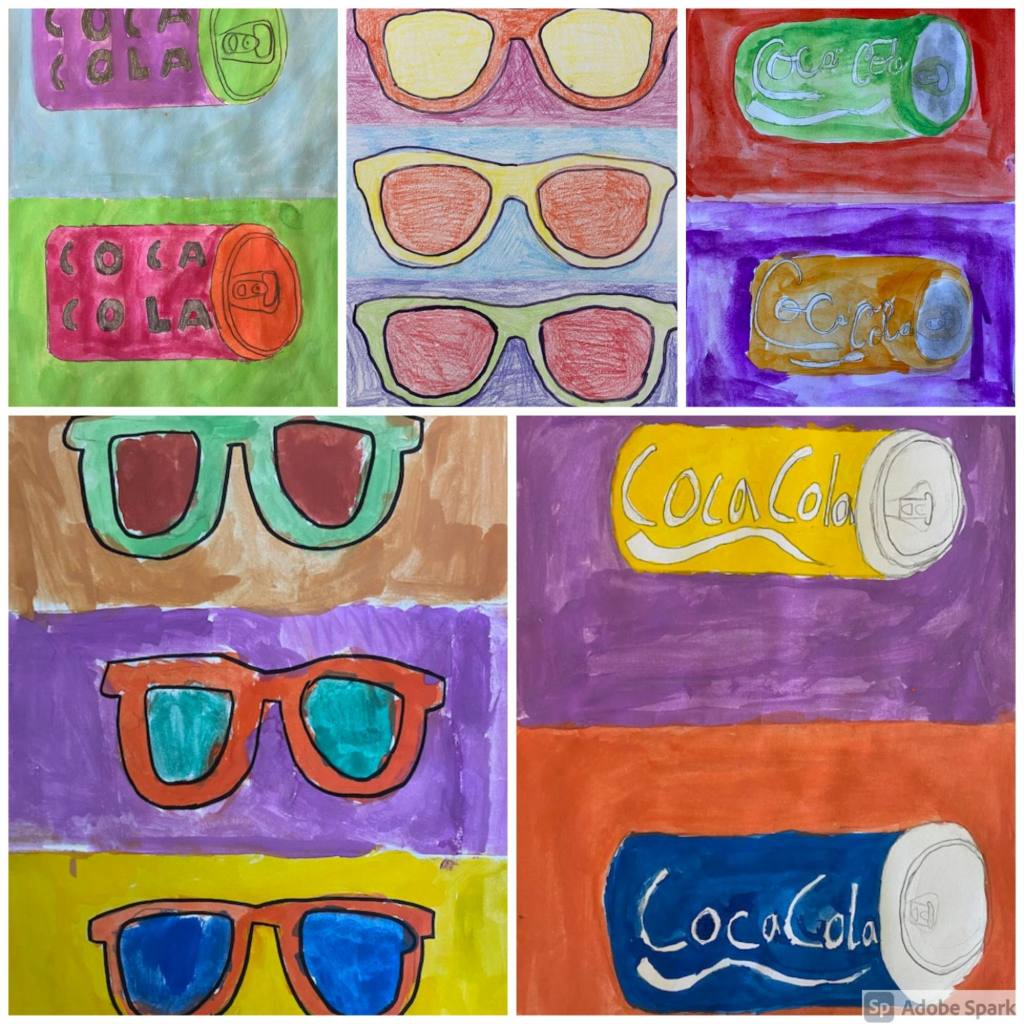Primary eNews – April 30, 2021
Student Agency and Well-Being in Grade 5
Grade 5 are tuning in to their final unit of the year, under the theme Who We Are. A related concept of this unit is well-being. Students were introduced to the wheel of wellbeing. The Wheel of Well-being supports the students in understanding how to balance the different areas of their lives and promote a positive mindset, essential for learning and reaching their utmost potential.

Students were given the task of designing their own schedule, ensuring they had learning experiences or activities from each section of the wheel. They worked on this over one face to face day and one online day of learning. During their consultation day, students collaborated to ensure their schedules aligned promoting connection and organisational skills. They coordinated basketball games. Tag, reading sessions and a trip to the school garden (which we unfortunately ran out of time for).

During their online day, students carefully colour coded their schedule to ensure a balance of tasks from the wheel.

They took time to reflect on their day using the visible thinking routine PMI – considering the plus or positives, minuses and interesting areas of the day.

Giving students the opportunity to create their own schedules and reflect on their own learning promotes student agency. According to the IB, “PYP students with agency use their own initiative and will, and take responsibility and ownership of their learning. They direct their learning with a strong sense of identity and self-belief, and in conjunction with others, thereby building a sense of community and awareness of the opinions, values and needs of others.” This has truly been evident this week as students took time to connect and rebuild relationships. Well done Grade 5!

Connecting our Units in Grade 4
We are well and truly gathering momentum finding out about “markets” in our new Grade 4 unit of inquiry: how we organise ourselves. Supported by media lessons with Mr. Marshall, Grade 4 have been introduced to “stock markets”, traditional markets in Indonesian studies and goods and services in the homeroom.
One of our key concepts in this unit is connection: how is it linked to other things? Through a range of learning experiences, we aim to develop an understanding of different interacting systems in our community and how they relate to each other.
Students started out by sorted some key vocabulary of the unit into groups, and suggesting why they grouped them in this way.
These beginning connections help us to design learning activities that build on students current understandings and also address misconceptions they may have. Our beginning connections will change and develop over the course of the unit.

Continuing to explore the concept of connection, we are able to link our “advertising” unit to this new “economics” unit through the art of advertising. Advertising is an important system that we will be using to sell our products at our Grade 4 market. This relationship between advertising and marketing will affect the success of our product sales and highlights the meaning of connection.
We have begun by revisiting colour through the artist study of Andy Warhol. Students identified features that make the art “pop” and discussed design elements: colour and space; design principles: pattern and emphasis.
Then we had fun creating some of our own art in this style as we further develop skills to create our own graphic advertisements.
Counseling
Teaching Children To Be Honest
Sometimes as parents, we are surprised when we see our children lie or cheat. What causes children to lie or cheat, and how can we support them to develop more positive behaviors. This short video by Greater Good Science out of Berkeley explains why children lie or cheat and how we as parents can support children in being honest. In this article by the Child Mind Institute, they clarify that kids lie to test out a new behavior, gain approval, get the focus off themselves or because they commonly speak before they think. Read the article to learn about their parenting suggestions to support children in avoiding lying by using truth checks, implementing the preamble method, and providing think time without making children feel labeled or cornered.



